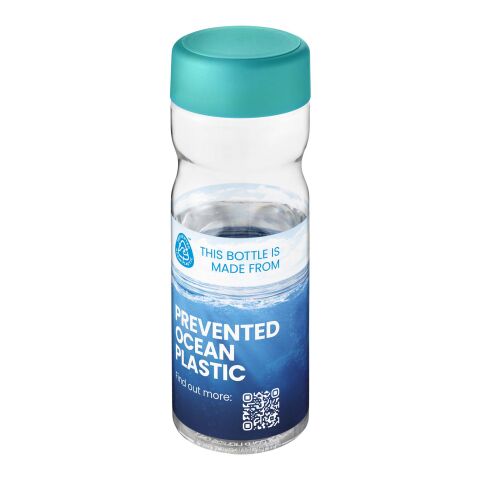Sustainable Marketing: A Step in the Right Direction
Reduce your carbon footprint this April with our eco-friendly promotional products. Raise awareness among other firms, celebrate Earth Day 2023 and become an ally for the planet.

Being sustainable is not just important for Earth Day, rather, it has become a consumer expectation nowadays. To be sustainable means to use only the necessary resources for production and marketing while reevaluating and restructuring processes. It also involves treating employees and stakeholders ethically and responsibly. The focus of consumers has shifted from just the products of companies to encompass their entire sustainable marketing strategy.
Earth Day is a global event celebrated annually on April 22nd. It is a day dedicated to raising awareness about the importance of environmental protection and sustainability. For businesses, Earth Day represents an opportunity to demonstrate their commitment to corporate social responsibility and to take action to reduce their environmental impact.
Why is Earth Day important for businesses?
Earth Day is an important opportunity for businesses to demonstrate their commitment to corporate social responsibility and to take action to reduce their environmental impact. By adopting sustainable practices, raising awareness about environmental issues, supporting environmental organisations, and encouraging employee involvement, businesses can help protect the planet and ensure a sustainable future for generations to come.
In addition to the environmental benefits, there are also business benefits to being environmentally responsible. By adopting sustainable practices, businesses can reduce their operating costs, increase efficiency, and improve their brand reputation. Consumers are becoming increasingly environmentally conscious and are more likely to do business with companies that demonstrate a commitment to sustainability.
What is sustainable marketing?
Sustainable marketing is a marketing approach that focuses on promoting products and services that have minimal negative impacts on the environment and society, while still meeting the needs and wants of consumers. This marketing approach has become increasingly popular in recent years, as consumers have become more aware of environmental and social issues and are looking for ways to make a positive impact through their purchasing decisions.
Sustainable marketing involves several key principles, including:
-
Product development: Companies need to focus on creating products that are eco-friendly and sustainable, which means considering the entire lifecycle of the product from sourcing to disposal.
-
Transparency: Companies need to be transparent about their sustainability efforts, including how they source materials, manufacture products, and dispose of waste.
-
Information: Sustainable marketing involves educating consumers about the benefits of sustainable products and how they can make a positive impact on the environment and society through their purchasing decisions.
-
Innovation: Companies need to continually innovate to find new ways to reduce their environmental impact and create sustainable products.
What is greenwashing?
Greenwashing is a term used to describe companies that make false or exaggerated claims about their sustainability efforts to appeal to consumers who are looking for eco-friendly products. Greenwashing can take many forms, from using misleading labels or certifications to making unsupported claims about the environmental benefits of a product.
Greenwashing is a problem because it can mislead consumers into thinking they are making a sustainable choice when, in reality, they are not. This can lead to a lack of trust in companies and the sustainability movement as a whole. It also means that consumers may not be taking the necessary steps to reduce their environmental impact, as they believe they are already doing so by purchasing a supposedly sustainable product.
To avoid greenwashing, consumers need to do their research and look for products and companies that have a proven track record of sustainability. They can also look for third-party certifications, such as the Forest Stewardship Council (FSC) or the Rainforest Alliance, which indicate that a product has been produced in an environmentally sustainable way.
Companies can also take steps to avoid greenwashing by being transparent about their sustainability efforts and avoiding making unsupported or exaggerated claims about the environmental benefits of their products. They can also work to continually improve their sustainability practices and seek out third-party certifications to demonstrate their commitment to sustainability.
What are the benefits of sustainable marketing?
Sustainable marketing offers several benefits for both companies and consumers. Here are some of the main benefits of sustainable marketing:
-
Competitive Advantage: Sustainable marketing can give companies a competitive advantage by differentiating their products and services from those of their competitors. Consumers are increasingly looking for eco-friendly and socially responsible products, and companies that meet these demands can gain a significant market advantage.
-
Increased Brand Loyalty: Companies that engage in sustainable marketing can build strong relationships with their customers by aligning their brand values with those of their target audience. By showing a commitment to sustainability, companies can increase brand loyalty and foster long-term customer relationships.
-
Cost Savings: Sustainable marketing can lead to cost savings for companies by reducing waste, energy consumption, and other environmental impacts. By using sustainable materials, reducing packaging, and implementing energy-efficient practices, companies can save money while also reducing their environmental footprint.
-
Improved Reputation: Companies that engage in sustainable marketing can improve their reputation by demonstrating their commitment to social and environmental responsibility. This can help companies attract and retain employees, investors, and customers who value sustainability.
-
Positive Social and Environmental Impact: Sustainable marketing can have a positive impact on society and the environment by promoting products and services that are less harmful to the planet and people. By reducing waste, conserving resources, and supporting social causes, companies can contribute to a more sustainable future.
In summary, sustainable marketing offers many benefits for companies, including a competitive advantage, increased brand loyalty, cost savings, and a positive reputation. It also has a positive impact on society and the environment by promoting eco-friendly and socially responsible products and services.
How to be an eco friendly company?
There are several ways that a company can be more eco-friendly and reduce its environmental impact. Here are some practical steps that companies can take:
-
Reduce Energy Consumption: Companies can reduce their energy consumption by implementing energy-efficient practices such as turning off lights and equipment when not in use, installing LED lighting, and using energy-efficient appliances.
-
Reduce Waste: Companies can reduce their waste by implementing recycling programs, using reusable containers, and minimizing packaging. They can also encourage employees to bring their own reusable containers and utensils to work.
-
Sustainable Sourcing: Companies can source materials from sustainable sources such as FSC-certified forests or using recycled materials. They can also work with suppliers who have sustainable practices in place.
-
Green Transport: Companies can reduce their carbon footprint by promoting green transportation options such as walking, cycling, or public transport for employees. They can also consider using electric vehicles for company transport.
-
Water Conservation: Companies can reduce their water consumption by installing low-flow toilets and faucets, fixing leaks promptly, and promoting water conservation practices among employees.
-
Social Responsibility: Companies can also demonstrate their eco-friendly and social responsibility by supporting local community initiatives, donating a portion of profits to environmental causes, and engaging in sustainable partnerships.
By taking these steps, companies can significantly reduce their environmental impact and contribute to a more sustainable future. Adopting eco-friendly practices can also improve a company's reputation, attract environmentally conscious customers, and improve overall business sustainability.
In conclusion, sustainable marketing is an important approach for companies to take if they want to meet the needs and wants of today's consumers while minimizing their environmental and social impact. However, companies must be transparent about their sustainability efforts and avoid greenwashing to ensure that consumers can make informed purchasing decisions that align with their values and beliefs. Similarly, consumers must be careful to avoid falling for greenwashing tactics and look for products and companies that have a proven commitment to sustainability. By working together, companies and consumers can create a more sustainable future for all.




.png)
.png)
.png)











